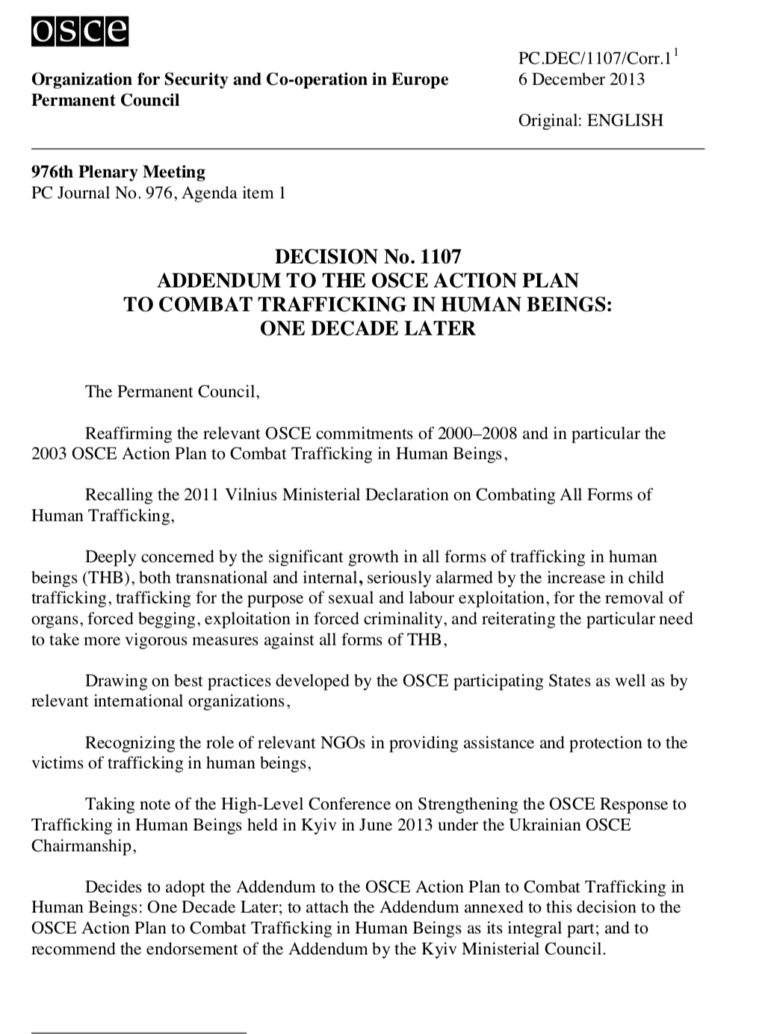The Addendum complements the OSCE Action Plan to Combat Trafficking in Human Beings adopted in 2003 and supplemented in 2005, and provides the OSCE participating States with an updated toolkit to combat all forms of trafficking in human beings (THB). The Addendum helps to address the current and emerging THB trends and patterns, as well as the most pressing challenges related to the prosecution of the crime, its prevention, and protection of trafficked persons.
In its structure the Addendum follows the example of the Action Plan by addressing the “three Ps” (Prosecution, Prevention and Protection) in three separate sections. In addition, it is complemented by a new section on Partnerships.
With regards to prevention of THB in supply chains, the Addendum recommends to OSCE participating State to consider incorporating, or, as applicable, implementing, “zero-tolerance” policies or other similar standards in government procurement of goods and services and to encourage the private sector, trade unions and relevant civil society institutions, to promote codes of conduct to ensure the protection of the human rights and fundamental freedoms of workers throughout the supply chain in order to prevent the exploitative situations that foster trafficking in human beings.

